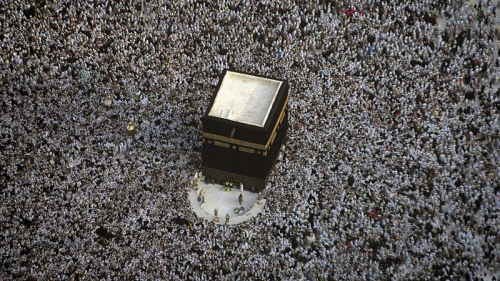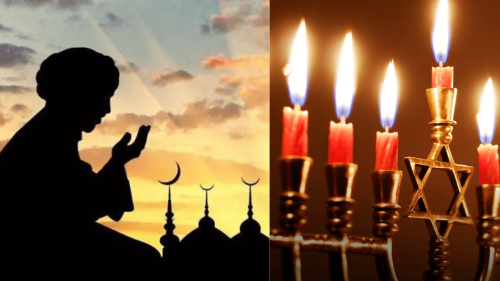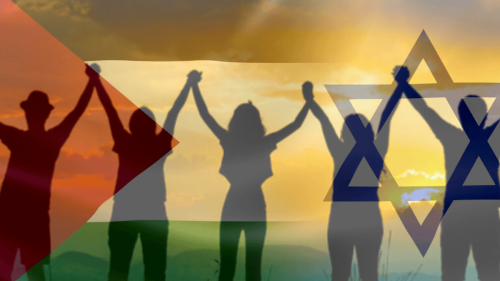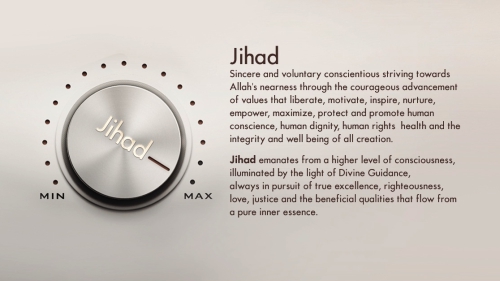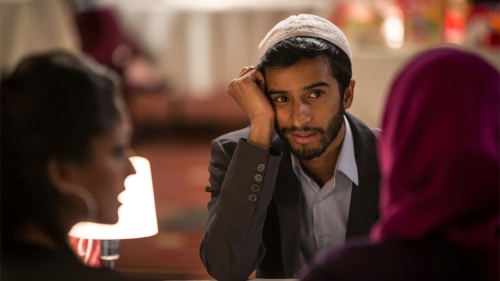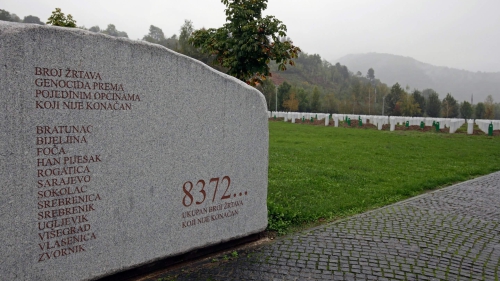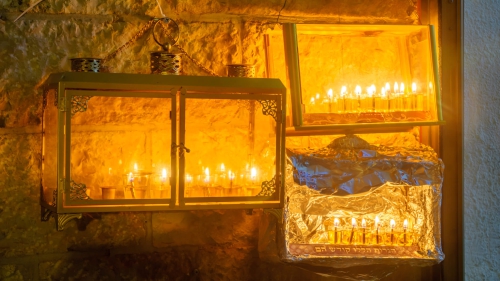Russian Ijmaa on Jihad and Ideological Split of Muslim Community
 |
| Attendances of the first International Theological Conference: "Islamic Doctrine Against Radicalism" on May 25-26, 2012, in Moscow, Rusia. |
Last week of May a whole cascade of revolutionary events has fallen upon Moscow. All of them have happened on the first in the Russian history International Theological Conference "Islamic doctrine against radicalism" or immediately after it. This Conference has taken place on May 25-26 in Moscow hotel "Ritz-Carlton".
Following the two-day work the Conference participants - the leading Muslim scholars of the Islamic world and the spiritual leaders of Russian Muslims have adopted the Moscow Theological Declaration of Muslim scholars on Jihad, the application of Shariah and the Caliphate. This theological document contains the theological conclusions that condemn radicalism, extremism and violence under religious slogans.
By the unanimous decision the level of final theological document of the Conference was raised from the level of a single fatwa, considering private legal affairs of Muslims, to the level of Moscow Theological Declaration which unites the theological decisions on several key legal issues. This fact puts it in a number of such historical documents as Mecca Declaration, Amman Declaration, Cairo Declaration and several others.
The faces of event
The first revolutionary fact for Moscow and Russia was that first time after the USSR collapsed a fifty-odd of foreign Islamic scholars was officially invited to the country. The fact is that after two Chechen wars Russian media, political analysts and propagandists has created from Arabic and Turkish Muslim scholars, religious leaders and preachers an image of the enemy.
They were blamed in firing and fueling the armed conflicts in the Northen Caucasus and were named the main persons responsible for the radicalization of Muslim youth in the region. That is why actually for years Russia has been completely closed for foreign religious activists, scholars and leaders. But this measure didn't help Russian government to stop the process of radicalization of Muslim youth in the Northen Caucasus.
But the May Conference in Moscow first time in new history of Russia hosted a fifty-odd of Arabic Muslim scholars - and this was something revolutionary for the country. In total several hundred people - the largest international Islamic scholars from 23 countries of the Muslim world, thinkers and the recognized experts have gathered those days in Moscow.
The conference, organized by International Center "al-Wasatya" (Kuwait), Scientific-Educational Center "al-Wasatya" (Russia) and the International Union for Muslim Scholars, was attended by the leading Islamic scholars of the Kingdom of Saudi Arabia, Kuwait, Qatar, Morocco, Jordan, Tunisia, Bahrain, Iraq, Egypt, Lebanon, Mauritania, Sudan, Afghanistan, Turkey, Iran, Albania, Switzerland, Kyrgyzstan, Uzbekistan, Tajikistan, Kazakhstan, Azerbaijan and the Russian Muftis, representing the vast majority of the country.
 |
| Secretary General of the International Union of Muslim scholars, Dr. Ali Al-Karadaghi with Chairman of the Council of Muftis of Russia, Mufti Ravil Gaydutdin and ex-Mufti of Uzbekistan Muhammad Sadyk Muhammad Yusuf |
Very significant was the participation in the event of such luminaries of Islamic theology worldwide, as the Secretary General of the International Union of Muslim scholars, Dr. Ali al-Karadaghi; the deputy Chairman of the International Union of Muslim scholars, Dr. Abdullah bin Bayyah; Mufti of Lebanon Sheikh Muhammad Rashid al-Kabbani; Mufti of Oman Sheikh Ahmed bin Hamid al-Khalili; Tunisia's Religious Affairs Minister Dr.Nour-ud-Din al-Khadimi; Kuwaitian Undersecretary of the Ministry of Awqaf and Islamic Affairs Dr. Adel Al- Falah; Secretary General of World organization on reciting Koran of World Islamic league by Abdulla ibn Ali Basfar; Head of the Sunni Religious Endowments (al-Awqaf) in Iraq Ahmad Abd al-Ghaffur al-Samarra'i and others.
Russian Muslim religious leaders on the event were represented by the heads of Muslim centralized spiritual boards - the Chairman of the Council of Muftis of Russia, Mufti Ravil Gaydutdin; the Chairman of the Coordination Centre of North Caucasus Muslims, Mufti Ismail Berdiyev; the Chairman of the Russian Association of Islamic Consent, Mufti Muhammad Rahimov; the deputy Chairman of the Central Spiritual Board of Muslims of Russia, Mufti Albir Krganov.
Result of the Conference
The second revolutionary fact for Russia was that the final document of the Conference named Moscow Theological Declaration of Muslim scholars on Jihad, the application of Shariah and the Caliphate was filled with references on Ibn Taymiyyah and Ibn al-Qayyim. The fact is that during all post-Soviet history of Muslim community of Russia exactly these Islamic thinkers were stamped by official Muftis of the country as the ideologists of Wahhabism and radicalism.
Till this moment the presence of recitations from Ibn Taymiyyah's and Ibn al-Qayyim's papers in any books and articles in some cases could be reason for prohibition of particular book or article by the Court as an extremist one. But this Conference has destroyed such practice of last years. Because during two days a half a hundred of Arabic Muslim scholars in the center of Moscow, literally a few steps away from Kremlin constantly cited these scholars as great Islamic thinkers of the past.
As a result, the event participants announced the adoption of the theological conclusion condemning extremism and radicalism in the complex of symptoms, as well as condemning the use of self-serving political purposes of such terms as Jihad (diligence in the way of Islam), Takfir (the accusation of unbelief and leaving Islam) and the Caliphate (historical and theological concept of Islamic state).
According to experts it is the misinterpretation of these terms that leads to the radicalization of many Muslims around the world and the mistaken understanding that pushes many Muslims to armed struggle to establish an authoritarian political order under the religious banners. This factor is now at the heart of many conflicts in various parts of the Muslim world - from Russia's Northern Caucasus to Afghanistan and Somalia.
"The main advantage of this Declaration is that we don't only blame the Muslim youth in radicalism but we reveal the true reasons of this radicalization, - said Sheikh Ali al-Karadaghi after the Conference, - For instance we say about tyrannies in Arabic world, about aggressive Zionist and US policies in Muslim countries, about tortures and persecutions as main reasons of radicalization of Muslim youth".
"This Declaration contains an appeal to the Muslim youth to come to dialogue, an appeal to the authorities to provide more freedom, an appeal to the religious organizations to be ready for renewing their methods and programs of activity, an appeal to Muftis not to give fatwas sitting at homes, - he said, - To gain the trust from youth we should ourselves go toward the youth and their demands"
As for importance of this meeting Dr. Adel al-Falah said that "this Conference has an enormous significance for Muslim community of Russia". "The final document of the Conference should be named as Declaration, or Explanation, - he said, - because it contains deep and fundamental explanation of Shariah principles concerning Jihad, Takfir and Caliphate. And about these principles there is an Ijmaa - a consensus of all Muslim scholars".
 |
| Deputy Chairman of the International Union of Muslim Scholars, Dr. Abdullah bin Bayyah and Kuwaitian Undersecretary of the Ministry of Awqaf and Islamic Affairs Dr. Adel Al- Falah. |
Governmental support
The third revolutionary fact for Russia was that the first time in post-Soviet history of Muslim community of the country Russian authorities not only allowed to happen such Conference in Moscow, but directly supported it.
Actually the event was from very beginning supported by Russian authorities - Administration of the President of Russia, Security Council of Russia and governments of Muslim regions of Russian Federation, like Dagestan, Chechnya and so on. For example, the Conference in the first day was opened by greeting speech of the head of Department on religious affairs of the Russian Presidency Administration Ilya Barinov.
"In our country during long period of time people of different nationalities and confessions live in peace and consent.And this event one time more proves that, - he said, - I think that Muslim scholars and leaders gathered in Moscow in their theological discussions will show to the world that Islam is the religion of peace and kindness. All theological documents adopted at this meeting will contribute the promotion of principles of the moderation of Islamic religion".
During two days workshops foreign guests of the event have listened to the reports on the problems and prospects of governmental-Islamic relations in Russia. The deputy of State Duma - Russian Parliament and the head of Dagestani Commission of adaptation to the civilian life of those who stopped terrorist and extremist activities Rizvan Kurbanov, the head of Dagestan Ministry for National Policy, Religious Affairs and External Relations Bekmurza Bekmurzaev reported on the Russian experience of anti-radicalism work and the struggle against anti-armed extremist groups hiding behind religious slogans.
At the end of two days Conference in Moscow all foreign guests of the event were invited to Chechen capital - Grozny city by Chechen president Ramzan Kadyrov. "The Declaration on Jihad, the application of Sharia and the Caliphate adopted these days by the scholars of Muslim world has an enormous significance both for Muslims of Russia and Muslims of the whole world, - said Kadyrov, - I hope that radical part of Muslim youth of Russia will consider the opinion of competent scholars of Muslim world".
Ideological split
The forth revolutionary fact for Russia was that in spite of so many unusual events for Muslim community of Russia during one Conference this community for the most part approvingly react on it. Though till this Conference every insignificant event could turn to become a factor of discord of Russian Muslim society. The fact is that Russia's Muslim community of 20 million is incredibly diverse, complicated and fragmented.
There are a big number of differences, contradictions and even ideological splits between various Muslim social, national and regional groups. The absence of unity and consent within Russian Muslim ummah is visible on the fact that in Russia there more than 80 Muftis which are divided between four main centralized spiritual boards - Council of Muftis of Russia, Central Spiritual Board of Muslims of Russia, Coordination Centre of North Caucasus Muslims and Russian Association of Islamic Consent.
During last years there wasn't any single case on which these centralized spiritual boards had come to agreement. Excluding may be the annual meetings with President of Russia. But this Conference has pushed all official religious organizations of Russia's Muslims to support the initiative of meeting organizers - the Kuwaitian and Russian Centers for al-Wasatya and the International Union for Muslim Scholars.
However so ambitious event couldn't run without any criticism. And three completely opposite and contrary groups have coincided in criticizing this Conference. The first group is represented by Tatar traditionalists strictly adhering Hanafi Madhab and relying on the theological works of Tatar religious thinkers of previous centuries.
The main spokesmen of this group are the Deputy Chairman of Spiritual Board of Muslims of European part of Russia Damir Mukhetdinov and the rector of Moscow Islamic University Damir Khairetdinov. They charged Arabic Muslim scholars prepared the text of Moscow Theological Declaration with neglecting during this job the works of Tatar Hanafi scholars of 19-20 centuries.
The second group has criticized the Conference can be defined as an anti-modernization opposition to active part of Russian Muslim society. This group is represented by such contradictory persons like the head of Center of geography of religions under Russian Orthodox Church Roman Silantyev and the activist of organization "Tatars for Israel" Rais Suleimanov.
This group always regularly criticizes any new initiative within Muslim community of Russia, especially if this initiative aims to develop new ambitious Muslim projects. As for Moscow Conference they accused its organizers in relying on the works only of Salyafi scholars and thinkers.
The third group has criticized the Conference is represented by Salyafi youth which blames the organizers and participants of the meeting in "dangerous compromises" with Russian authorities in condemning Jihad and Caliphate. On behalf of this groups two Dagestani journalists Abd-ul-Mu'min Gajjiev and Zuhum Zuhumov had announced their blames and claim to this Conference saying that the final document of it cannot be named fatwa and that it's impossible to state that this document is based on Ijmaa.
However it's possible to say that he Moscow Conference and its final document - Moscow Theological Declaration of Muslim scholars on Jihad, the application of Shariah and the Caliphate beneath our very eyes becomes a history. Because in two days of hard work, the Conference members have turned to be able to do the job which hadn't done by Muslim leaders of Russia during last 20 years.
Moreover it is evident enough that the real impact of this Conference on Muslim society of Russia today can't be even comprehended in full measure by official Muslim leaders. It will not be mistake if we say that the complete result of the Conference and its significance for Muslim Ummah of Russia will reveal during long period of time.
*****
Dr. Ruslan Kurbanov, senior research fellow of Institute for Oriental Studies of Russian Academy of Sciences, PhD in Political Science.






